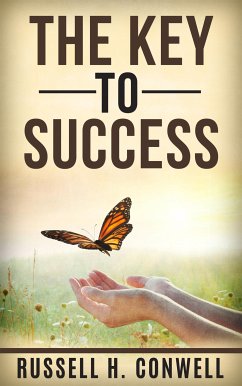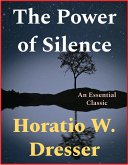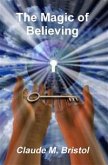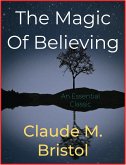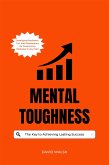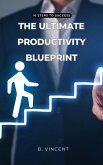"Let every man or woman here, if you never hear me again, remember this, that if you wish to be great at all, you must begin where you are and with what you are. He who would be great anywhere must first be great in his own Philadelphia."
"Many of us spend our lives searching for success when it is usually so close that we can reach out and touch it."
People are thinking, but they can think much more. The housewife is thinking about the chemical changes caused by heat in meats, vegetables, and liquids. The sailor thinks about the gold in sea-water, the soldier thinks of smokeless powder and muffled guns; the puddler meditates on iron squeezers and electric furnaces; the farmer admires Luther Burbank's magical combinations in plant life; the school-girl examines the composition of her pencil and analyses the writing-paper; the teacher studies psychology at first hand; the preacher understands more of the life that now is; the merchant and manufacturer give more attention to the demand. Yes, we are all thinking. But we are still thinking too far away; even the prism through which we see the stars is near the eyes. The dentist is thinking too much about other people's teeth.
This book is sent out to induce people to look at their own eyes, to pick up the gold in their laps, to study anatomy under the tutorship of their own hearts. One could accumulate great wisdom and secure fortunes by studying his own finger-nails. This lesson seems the very easiest to learn, and for that reason is the most difficult.
The lecture, "The Silver Crown," which the author has been giving in various forms for fifty years, is herein printed from a stenographic report of one address on this general subject. It will not be found all together, as a lecture, for this book is an attempt to give further suggestion on the many different ways in which the subject has been treated, just as the lecture has varied in its illustrations from time to time. The lecture was addressed to the ear. This truth, which amplifies the lecture, is addressed to the eye.
My hope is by this means to reach a larger audience even than that which has heard some of the things herein so many times in the last forty-five years. We do not hope to give or sell anything to the reader. He has enough already. But many starve with bread in their mouths. They spit it out and weep for food. Humans are a strange collection. But they can be induced to think much more accurately and far more efficiently. This book is sent out as an aid to closer observation and more efficient living.
CONTENTS:
Foreword
Observation:—The Key to Success
Who the Real Leaders Are
Mastering Natural Forces
Whom Mankind Shall Love
Need of Orators
Woman's Influence
"Many of us spend our lives searching for success when it is usually so close that we can reach out and touch it."
People are thinking, but they can think much more. The housewife is thinking about the chemical changes caused by heat in meats, vegetables, and liquids. The sailor thinks about the gold in sea-water, the soldier thinks of smokeless powder and muffled guns; the puddler meditates on iron squeezers and electric furnaces; the farmer admires Luther Burbank's magical combinations in plant life; the school-girl examines the composition of her pencil and analyses the writing-paper; the teacher studies psychology at first hand; the preacher understands more of the life that now is; the merchant and manufacturer give more attention to the demand. Yes, we are all thinking. But we are still thinking too far away; even the prism through which we see the stars is near the eyes. The dentist is thinking too much about other people's teeth.
This book is sent out to induce people to look at their own eyes, to pick up the gold in their laps, to study anatomy under the tutorship of their own hearts. One could accumulate great wisdom and secure fortunes by studying his own finger-nails. This lesson seems the very easiest to learn, and for that reason is the most difficult.
The lecture, "The Silver Crown," which the author has been giving in various forms for fifty years, is herein printed from a stenographic report of one address on this general subject. It will not be found all together, as a lecture, for this book is an attempt to give further suggestion on the many different ways in which the subject has been treated, just as the lecture has varied in its illustrations from time to time. The lecture was addressed to the ear. This truth, which amplifies the lecture, is addressed to the eye.
My hope is by this means to reach a larger audience even than that which has heard some of the things herein so many times in the last forty-five years. We do not hope to give or sell anything to the reader. He has enough already. But many starve with bread in their mouths. They spit it out and weep for food. Humans are a strange collection. But they can be induced to think much more accurately and far more efficiently. This book is sent out as an aid to closer observation and more efficient living.
CONTENTS:
Foreword
Observation:—The Key to Success
Who the Real Leaders Are
Mastering Natural Forces
Whom Mankind Shall Love
Need of Orators
Woman's Influence

